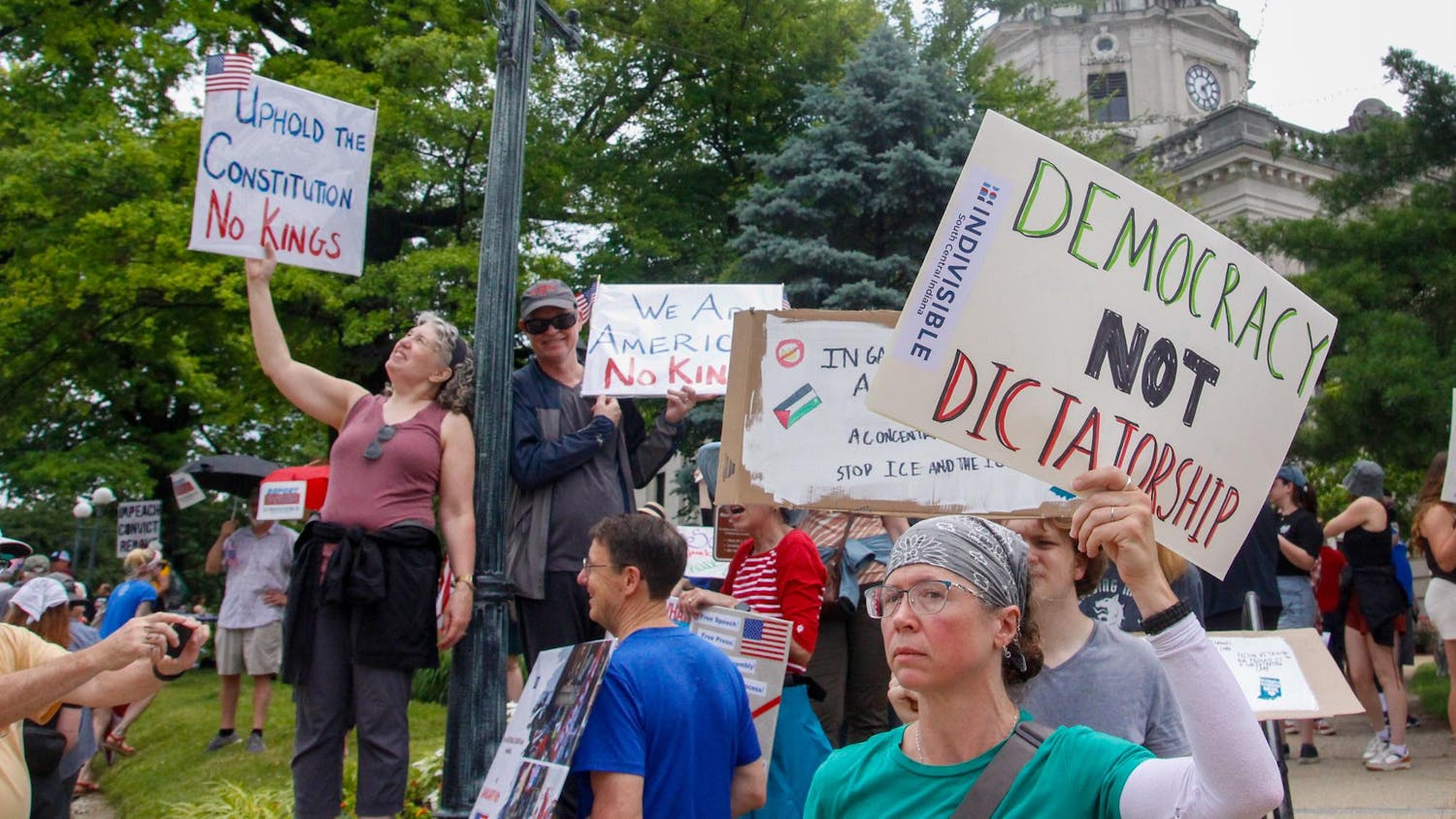Dave Rollo was the first person to present the concept of sustainability to the Bloomington city government in 2002.
The city was writing its Growth Policies Plan, the city’s guiding document at the time, and as then-Environmental Commission chair, Rollo wanted to make amendments to include sustainability.
“It was accepted, but it was a difficult battle,” Rollo said. “People were very skeptical. There were people opposed to the idea. And now it’s accepted and even celebrated.”
Rollo, 57, is running for his fifth term on the Bloomington City Council in District 4 and is still a full supporter of sustainability. If re-elected, he said he would work to protect core neighborhoods from development while building more affordable housing in other areas, create more trails and green infrastructure and support local businesses and farmers.
“My goal then and now is to recognize that we’re a world in transition and, Bloomington can lead the way,” Rollo said.
Rollo is a local organic farmer and retired IU biology professor. He began farming full time in 2011 and grows vegetables for local restaurants and food co-ops. Because of his connection with farmers, he said he is passionate about helping more local farmers grow food to supply Bloomington.
Former mayor Tomi Allison said Rollo’s scientific background helps him make difficult decisions on council.
“Believe me, when people are up in your face, it’s not easy to be a rational reasonable person,” Allison said.
In the recent Fourth Street parking garage decision, Rollo voted to rebuild the garage, going against what many environmental activists were rooting for.
He said he listened to both sides of the argument, but ultimately decided the rebuild was most economically sustainable option because of the harm local businesses were experiencing from the absence of the garage. He also said he thought small businesses would have moved to the outskirts of town if the garage was not rebuilt which would create more urban sprawl and car usage.
“Compact urban form is necessary for a community,” Rollo said.
Rollo said he is against the idea of adding duplexes or fourplexes to existing single-family residential neighborhoods because he thinks owners of these complexes will charge high rent rates, which would contradict the idea of affordable housing.
“There are places we can put density but, I think putting it inside of existing neighborhoods and disrupting the fabric and cohesiveness is not the way to do it,” Rollo said.
Jan Sorby, friend of Rollo’s and member of Bloomington Restorations Inc., said she agrees with Rollo’s view of adding density and affordable housing. She is an owner of a fourplex and does not think they would fit in with many of the core neighborhoods.
“I’m a huge supporter of that kind of housing, but they have to be put in the right places,” Sorby said.
She said when a neighborhood in Rollo’s district requests something like better rainwater infrastructure or a trail for better connectivity, he responds quickly and follows through with helping them. Sorby said he is a good listener as well.
“He has a way of calming people so that they can be comfortable and actually talk,” Sorby said.
Allison said she most respects Rollo for his drive to get a project done.
“Having been an activist and an organizer, I understand the difference between what you say and what it takes to get something done,” Allison said. “He’s someone who gets things done.”




